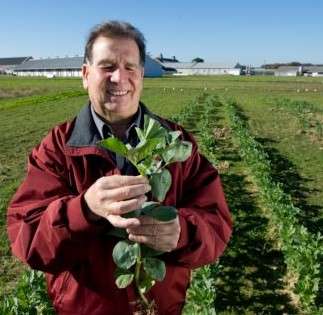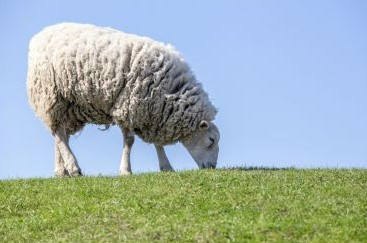By Gail Stephens
A University of Maryland Eastern Shore research team will share $1 million in federal funding with three partner institutions to gauge how cover-crop grazing by livestock affects soil quality in fields alternately used to grow organic consumer crops.
The money is part of a $9.5 million package of grants the U.S. Department of Agriculture recently awarded to 11 collaborative, multi-state projects to “enhance the competitiveness of (domestic) specialty crops.”

UMES, in partnership with the University of California at Davis, the University of Minnesota, The Organic Center in Washington, D.C. and the USDA's Agriculture Research Station in Beltsville, Md. will “investigate the benefits of livestock integration through cover-crop grazing on bacterial population dynamics, food safety, and soil and environmental health,” said Dr. Fawzy Hashem, a research associate professor in the university's Department of Agriculture, Food and Resource Sciences.
“Many growers and scientists consider livestock grazing with winter cover crop management in fresh produce or other agronomically important crop operations as a good approach to enhance soil health and benefit the environment by increasing carbon inputs,” Hashem said.
“It also can be helpful,” Hashem said, “in improving nutrient cycling, reducing dependence on external inputs, improving soil health and diversifying profit streams.”
